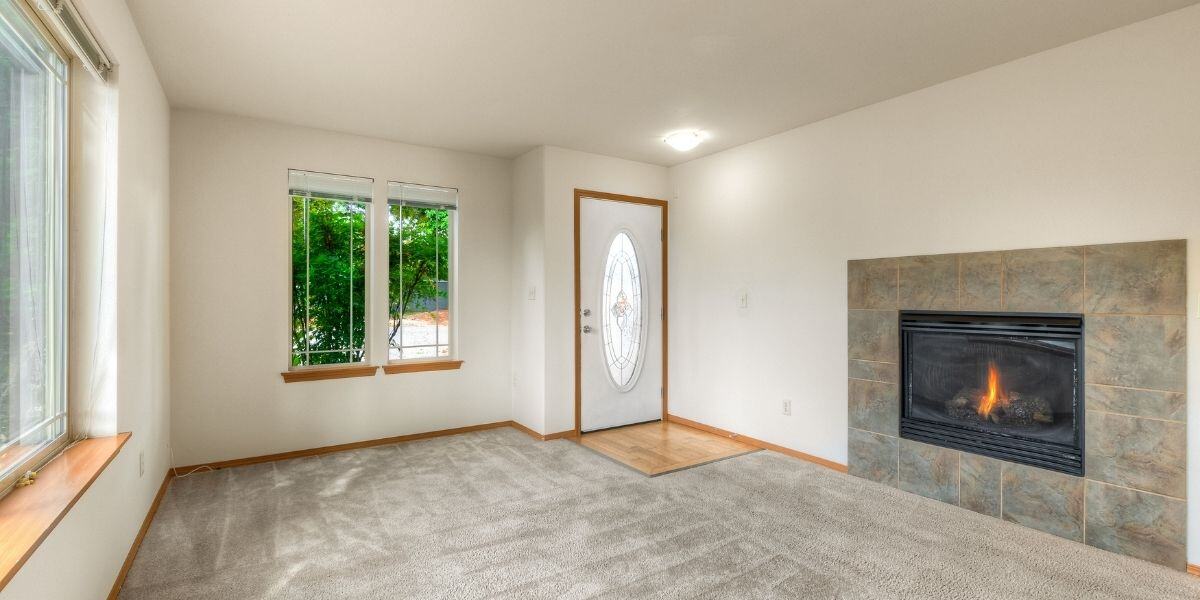5 Rental Property Tax Deductions You May Qualify for as a Landlord
Learning what can be deducted from your taxes as a landlord or property owner is very important if you want to maximize your profit on a rental...
7 min read
Shannon Browning : Sep 9, 2024 9:30:00 AM
Passive income has become a buzzword among investors, and for good reason. Earning money with minimal sustained effort is incredibly appealing, particularly in real estate. However, creating a sustainable stream of passive income isn’t just about purchasing any rental property and hoping for the best. It requires strategic planning, careful selection of properties, and the right management approach.
At Powell Property Management, with over a century of experience in the South Seattle and South Puget Sound markets, we understand the complexities of passive real estate investing. Our deep market knowledge and full-service property management expertise have helped countless investors transform their real estate portfolios into reliable passive income sources. This blog will explore the essential elements of passive income in real estate, from choosing the right properties to selecting a property manager who can maximize your investment’s potential so that you can set yourself up for longevity and success.

Passive income, at its core, is earnings derived from a rental property, limited partnership, or other enterprise in which the individual is not actively involved. In real estate, passive income typically comes from rental properties, where the goal is to generate steady income without requiring day-to-day involvement from the property owner.
But is rental income truly passive? While the income itself can be consistent, managing properties, tenants, and finances is anything but hands-off. The distinction between active and passive real estate investing becomes critical. Active real estate investing involves a hands-on approach—selecting properties, managing tenants, and handling repairs—while passive real estate investing, such as owning a well-managed multifamily property or investing in REITs (Real Estate Investment Trusts) for passive income, is designed to minimize the investor's direct involvement.
Real estate has long been favored by investors seeking passive income due to its potential for consistent cash flow, appreciation, and tax benefits. Unlike other passive income streams, such as stock dividends, real estate offers tangible assets that can appreciate over time, providing both ongoing income and long-term wealth accumulation.
Passive multifamily investing has become increasingly popular among small investors, offering a balance between risk and reward. Multifamily properties, especially in thriving markets like South Seattle and South Puget Sound, can generate substantial rental income, which, when managed correctly, becomes a dependable source of passive income.
Choosing the right property type is the first critical step in building a successful passive income stream through real estate. The property type—whether it’s a multifamily building, single-family rental, or commercial space—will largely determine your potential returns and the level of management required.
For investors focused on passive income, multifamily properties often provide the best balance between income potential and risk. These properties tend to offer more stable cash flows because vacancies in one unit can be offset by rents from others. Additionally, multifamily properties typically appreciate steadily, especially in high-demand areas.
Location is equally crucial. The South Seattle and South Puget Sound areas, including cities like Burien, Normandy Park, and Des Moines, are attractive markets for real estate investment due to their growing populations and strong rental demand. Investing in these regions can lead to higher occupancy rates and the ability to push rents over time, which is essential for maximizing passive income.
When evaluating potential properties, conducting a thorough market analysis is important. Look at local economic indicators, such as employment rates and population growth, as these factors drive demand for rental housing. Consider the property’s proximity to amenities, transportation, and schools, all of which attract quality potential tenants.
Before purchasing a property, investors should evaluate its potential returns using key financial metrics. Understanding these metrics will help you make informed decisions and set realistic expectations for your passive income.
The success of your passive income strategy hinges not just on the property you choose but also on the property manager you entrust with its care. A skilled property manager maximizes returns while minimizing the day-to-day involvement required from you as an investor.
When selecting a property manager, look for one with a proven ability to maintain high occupancy rates, ideally around 95%. This ensures your property remains profitable even as rents rise in response to market conditions. An effective property manager will expertly manage expenses, keeping operating costs under control without sacrificing the quality of maintenance and tenant satisfaction.
Regular reporting and open communication are also vital. You need a property manager who provides detailed, transparent updates on your property’s performance, enabling you to monitor your investment’s health without getting bogged down in the minutiae of management.
A comprehensive property management approach is crucial for maintaining and increasing the passive income generated by your rental properties.
Once you have good tenants, retaining them is vital to maintaining consistent rental income. Frequent tenant turnover can be costly, leading to vacancy periods and the expenses associated with preparing units for new occupants.
Effective retention strategies include timely maintenance responses, regular property upgrades, and creating a sense of community within the property. When tenants feel valued and have a comfortable living environment, they are more likely to renew their leases, reducing turnover and ensuring a stable income stream.
While it’s important to retain tenants, keeping your rental income in line with the market is equally crucial. Regularly adjusting rents in response to local market conditions is a necessary strategy to maximize revenue without compromising occupancy rates.
In areas like South Seattle and South Puget Sound, where rental demand is strong, there are opportunities to push rents without significantly increasing vacancy rates. A deep understanding of the local market trends, including changes in employment, population growth, and housing supply, is essential for setting competitive rents.
Rent increases should be implemented thoughtfully. Gradual, consistent increases are generally more palatable to tenants than sudden, large hikes. Providing value-added services or amenities can help justify higher rents while enhancing tenant satisfaction.
Real estate investing, particularly in rental properties, comes with its own set of legal and regulatory hurdles. Navigating these challenges is critical to protecting your income stream and avoiding costly legal disputes. A seasoned property manager like Powell is your best bet in bringing this expertise to your investment portfolio.
Landlord-tenant laws vary widely by location, and in areas like South Seattle and South Puget Sound, regulations can be particularly stringent. Issues such as eviction processes, rent control, and tenant rights are complex and subject to frequent changes. Staying informed about these regulations is crucial to ensuring your property management practices comply.
Unexpected expenses are inevitable in owning rental properties, but they don’t have to derail your passive income strategy. With careful planning and proactive management, you can minimize the impact of these costs.
Investors must stay informed about a property’s performance without getting bogged down in day-to-day management details. Consistent and accurate reporting allows you to monitor your investment's health, make informed decisions, and ensure that your property management team is maximizing your returns.
Effective communication is another cornerstone of successful property management. Whether it’s updating you on the status of a repair, informing you about a tenant issue, or discussing strategies for rent increases, clear and timely communication ensures that you are always in the loop.
If you’re looking to maximize your investment properties' potential and enjoy truly passive income, Powell Property Management is here to help. With over a century of experience managing multifamily properties in South Seattle and South Puget Sound, we have the expertise, market knowledge, and commitment to ensure your investment delivers the consistent returns you’re aiming for.
Contact us today to learn more about how we can help you confidently and easily achieve your passive income goals. Let us take care of the details so you can enjoy the rewards of smart real estate investing.

Learning what can be deducted from your taxes as a landlord or property owner is very important if you want to maximize your profit on a rental...

Whether you’re expanding your diverse real-estate portfolio or dipping your toe into investment property for the first time, the hunt for the perfect...

If you own a commercial or residential investment property in the South Sound area near Seattle, you may find that managing that property is a little...